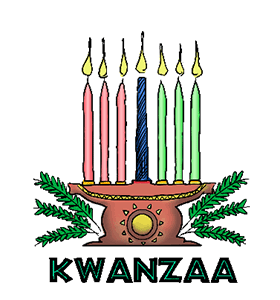Kwanzaa
Kwanzaa Quick Facts
| HashtagsCompiled on | #Kwanzaa |
|---|---|
| Related Hashtags | #Hanukkah, #Christmas |
| 2024 Date | December 26, 2024 |
| 2025 Date | December 26, 2025 |
2024 Holidays & Dates - US
| US & Common Holidays | ||
| Misc. & Int'l. Observancesℹ | ||
| Christian Holidays | ||
| Jewish Holidays |
› | ||
